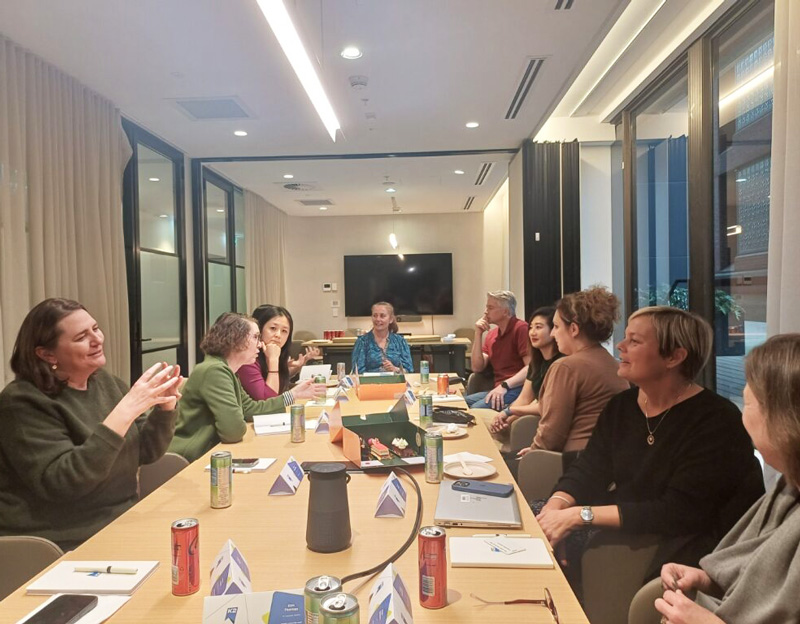Finding the Balance Between Efficiency and Human Connection
On Thursday, 8th August 2025, K2 Corporate Mobility, in partnership with AIRINC, hosted an exclusive lunch session at our offices in Sydney, Australia. The event brought together global mobility leaders to explore key trends and strategies that are shaping the future of workforce mobility.
According to AIRINC’s latest research, while 38% of companies describe their mobility programmes as moderately agile, only 15% consider their programmes highly agile and able to adapt quickly to change. Dynamic Policies and AI supporting Global Mobility operations, as well as enhancing the assignee experience, were the key topics of discussion throughout the day at our recent Sydney GM Leaders Forum. Mobility professionals from the technology, engineering and other sectors gathered to tackle one of the industry’s most pressing questions.

Policy Modernisation Takes Centre Stage
The forum began with networking over lunch, featuring some of Sydney’s famous cakes from The Grounds of The City, before AIRINC shared their latest research on modernising global mobility policies. Their findings revealed a significant shift happening across the industry – moving from traditional “Command & Control” approaches to more empowering frameworks.
This transformation touches every aspect of policy design:
- From compliance-focused to experience-driven programmes
- From rigid structures to flexible, adaptive frameworks
- From limited business integration to full strategic alignment
AIRINC highlighted how mobility programmes now support an expanding range of scenarios – assignments, transfers, remote work, immigration-only cases, and special situations. This diversification demands policies that can adapt while maintaining consistency.
A key focus emerged around dynamic policies and the critical need for employee transparency. Several attendees noted that clear communication becomes essential when implementing flexible benefit structures, as it helps prevent unhelpful comparison conversations between assignees.

The Human Touch Debate
The discussion naturally evolved into the question that sparked the most engagement: “As we embrace automation and AI in mobility programmes, how do we balance efficiency with maintaining the essential human touch? Which processes should be automated, and where is the human element irreplaceable?”
Where automation excels: Attendees showed strong interest in how AI is streamlining process steps, particularly those occurring before partner engagement. Many shared examples of internal efficiencies gained through AI tools like Co-Pilot, with automation proving valuable for document processing, compliance checks, and administrative tasks.
Building Community Through Conversation
The smaller forum format proved its worth, enabling the kind of direct conversations that generate real insights. Feedback confirmed this approach resonates with Sydney’s mobility community, with attendees appreciating the opportunity for honest, peer-to-peer exchange rather than traditional conference presentations. The success reinforced plans to continue these gatherings every six months. Sydney’s global mobility community may be small, but the appetite for collaborative discussion and shared learning is substantial.

What's Next
As mobility programmes continue evolving, the challenge isn’t choosing between efficiency and human connection – it’s thoughtfully integrating both. The forum highlighted that while automation will undoubtedly transform operational processes, the advisory relationship and personalised support that define quality mobility programmes remain distinctly human.
The commitment to continue these discussions reflects both the dynamic nature of our industry and the ongoing value of bringing practitioners together to navigate these changes collectively.
Interested in joining future Sydney GM Leaders Forums?
Contact: Kim Thomas

